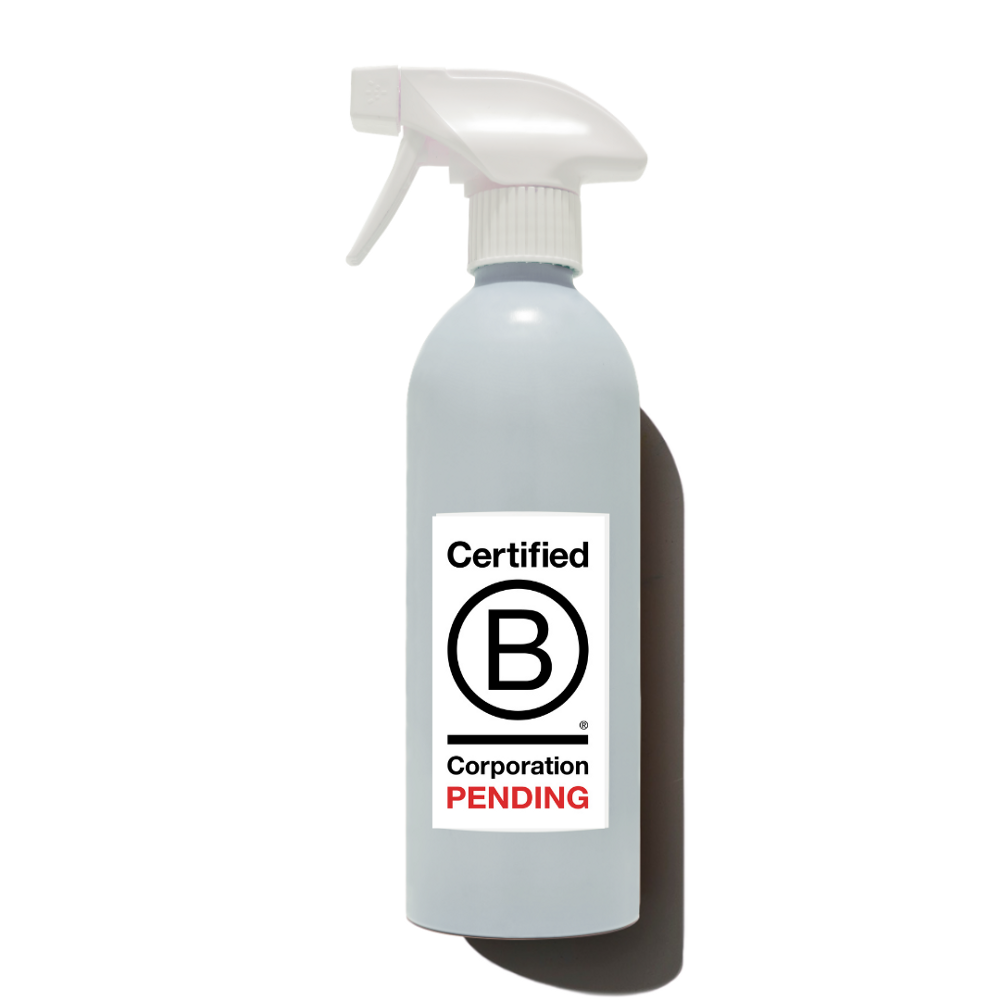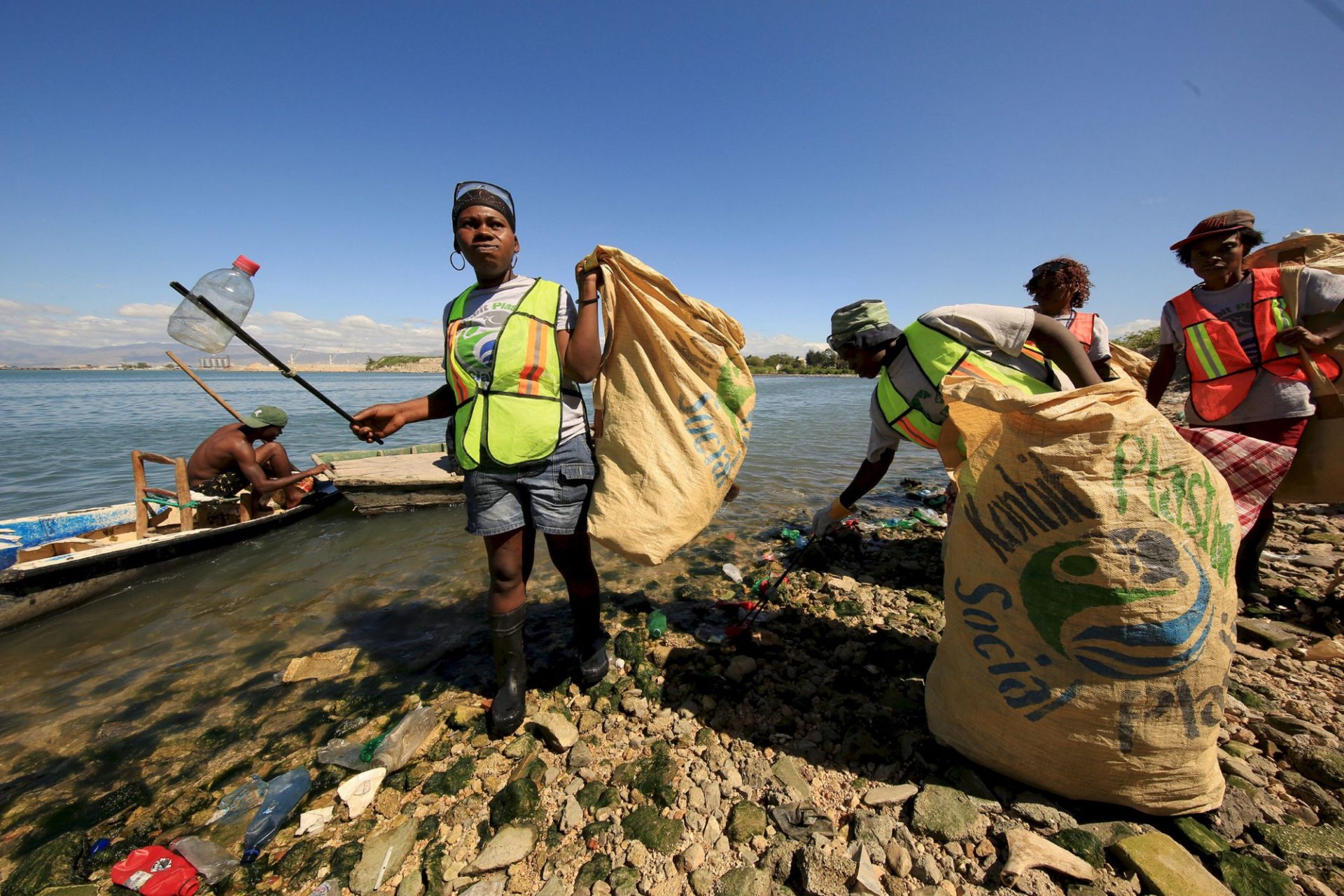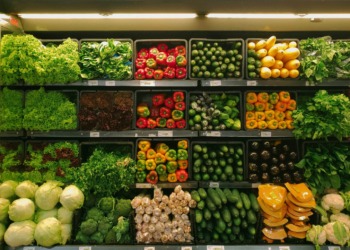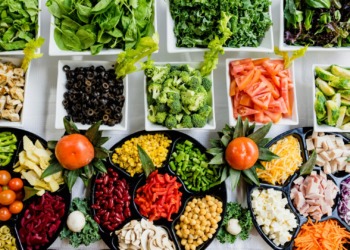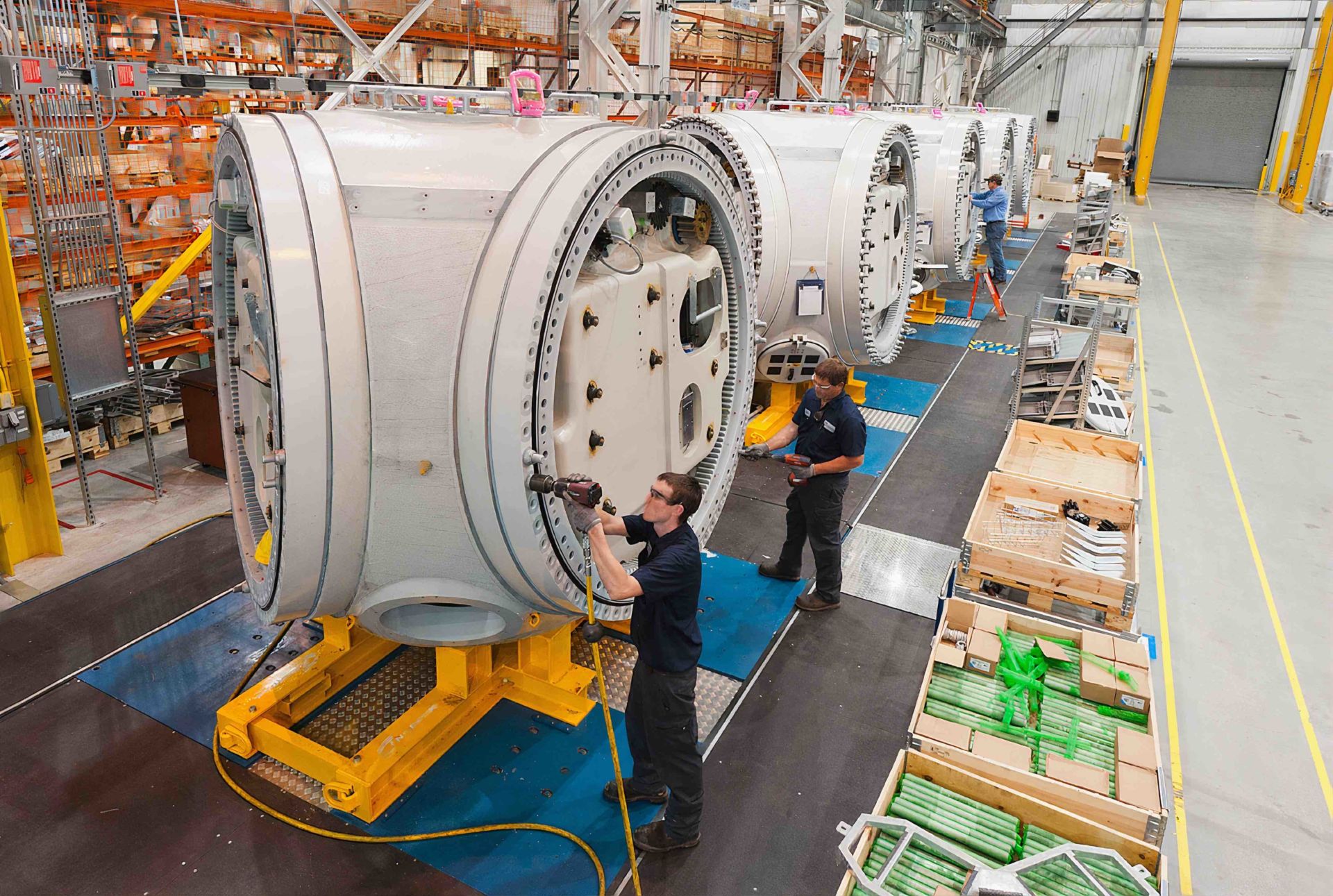Getting Started on Our B Corp Journey to Fight Plastic Pollution During the Pandemic
From living with a pandemic to the impending climate crisis to longstanding racial injustices to the fragile global economy and the issues of modern-day slavery, 2020 provided an education for us all. Perhaps, though, it is the year when we finally acknowledged that the old normal was not normal at all. The learning, it seems, is that we were operating with a fragile foundation. Therefore, we all have a responsibility to build a better and fairer world—to build back better. Living through the pandemic has been a difficult time for all. It has required getting used to a new normal that requires wearing protective gear, washing our hands constantly, and practicing social distancing in a way we had never experienced before. We know the importance of appropriate hygiene measures to slow infection rates; however, there is an invisible victim here — the planet. The fact is, plastic pollution is the other pandemic that is silently killing us.
The COVID-19 pandemic has resulted in a substantial increase in the use of disposable hygiene products like face masks and gloves, alas mostly all single-use plastics and in the difficult-to-recycle category. Some estimates suggest that globally we are consuming more than 129 billion face masks and 65 billion plastic gloves every month with no signs of slowing.
What is worrisome is that the pandemic waste is not just limited to face masks, gloves, and the millions of single-use hand sanitiser bottles. Restaurants are heavily relying on disposable cups and cutlery, and have switched to single-serve plastic sachets for condiments until further notice. Finally, because of our heightened fixation on hygiene, sales of hand wash and household cleaning products have surged dramatically. Most of these cleaning products come packaged in single-use plastic bottles that end up in landfill or the oceans.
We may have a much bigger problem at hand. It seems as if most of the progress we had made in the last few years to curb our plastic waste has been undone.
Here are the challenges we face today:
- Our resource consumption is abnormal. At the current consumption rate, by 2050 we will use Earth’s resources three times faster than can be regenerated. Scientists suggest that we have roughly eight to 10 years to save the planet by slowing global warming, but our actions in the next 12–18 months are critical in sealing the planet’s fate.
- Our measures of growth and success are askew. Gross domestic product (GDP), a commonly used measure of economic growth and success for nations, does not account for the cost to create monetary wealth, wellness of its people, or damage to the planet.
- Recycling is a myth. Less than 9% of the 800 billion tonnes of plastic has ever been recycled. Most of it gets incinerated, resulting in further air pollution and an increased risk of respiratory conditions, or it ends up in the oceans where it breaks down into micro and nanoparticles and lives on for hundreds of years.
Brands have a significant responsibility to be transparent with consumers about the hidden truth of recycling, to enable closed-loop circular designs, and to develop environmentally friendly products that do not rely on non-renewable fossil fuels.
How We Plan to fight the Plastic Pollution Pandemic
It is not possible to ignore the plastic pollution and climate change problem. While we deal with one pandemic, we must avoid exacerbating another. We launched Spruce to tackle the single-use plastic pandemic.
Supermarket shelves are lined with cleaning products that come in single-use plastic bottles, but what most people don’t realise is that they contain over 90% water— water that can easily be filled from our taps at home. In effect, consumers have been paying for fossil-fuel-powered plastic bottles, water, and active ingredients that tend to be highly toxic to both humans and the planet.
 In the photo: Aesthetics and ease-of-use help drive higher adoption of refillable and circular products. Photo credit: BCorp.
In the photo: Aesthetics and ease-of-use help drive higher adoption of refillable and circular products. Photo credit: BCorp.
By Designing Circular Products
At Spruce, we believe that refill systems are the future, as relying on recycling alone is not enough to meet the UK’s 2050 goal for net-zero emissions. Spruce offers lifelong refillable aluminium bottles that consumers can refill using tap water at home with our concentrated plastic-free refills.
A Purpose That Goes Beyond Profit
The good news is that customers have become savvier about which brands they vote for with their wallet. Certified B Corporations are on a mission to move away from shareholder value to stakeholder mindset. They are legally bound to prioritise the good of the people and planet as well as shareholder profitability.
In the photo: Signing up to become a business for good. Photo credit: BCorp.
Becoming a B Corporation
Purpose-driven companies will emerge stronger through the pandemic. B Corp Certification provides a compass to guide companies to make the right decisions even amidst a global crisis. Going through the assessment process during 2020 helped us realise the role and responsibility of businesses and brands in resetting the button to build a fairer world.
We are thrilled to join the B Corp community with a Pending status in our first year of launch. Signing up to become a B Corp at inception means that we can design our business processes to do the right thing when it comes to people, our employees, partners, customers, as well as the planet. By inherently designing our products, services and operations in a way that not only slows down further damage but enables regeneration.
We estimate that if every UK household switched to refillable cleaning products for just one year, it would prevent 330 million plastic bottles from polluting our planet.
 In the photo: Fighting the plastic pollution pandemic. Photo credit: BCorp.
In the photo: Fighting the plastic pollution pandemic. Photo credit: BCorp.
Regenerative, Not Just Circular
For us, B Corp is the ultimate representation of Intersectional Environmentalism, the belief that there is no environmental justice without social justice. Typically, the underprivileged communities are at a higher risk as a result of climate change. Incinerators are typically located in underserved communities resulting in higher air pollution. Access to clean drinking water is an issue. Response to disease prevention and control, such as in the face of the pandemic is inadequate. Deforestation and displacement also affect the underprivileged more than the affluent. While at the same time, the richest one per cent of the world’s population is responsible for more than twice as much carbon pollution as the 3.1 billion people who made up the poorest half of humanity during a critical 25-year period of unprecedented emissions growth.
For decades, countries in the west have been shipping their plastic waste — mostly contaminated — to developing nations with inadequate infrastructure to manage their own plastic waste. It often ends up getting incinerated, causing further wastage of non-renewable resources, climate damage and making their already extreme air pollution issue even more dangerous.
For this reason, we are keen to support low-income communities that are at a higher risk of disruption by climate change. We believe it is time to give back to the local communities that have suffered for decades. Plastic collectors are an extremely low income and high poverty social group, one that is often ignored for their part in preventing plastic pollution from entering the oceans. Working with Plastic Bank, we support collectors by giving them fair prices for the plastic collected, as well as ensuring that any profits from sales of the plastic are invested back in the community for their social development.
 In the photo: Spruce products. Photo credit: BCorp.
In the photo: Spruce products. Photo credit: BCorp.
By Lowering Our Overall Packaging Waste
We have chosen our product packaging based on various criteria of low transportation footprint, high recyclability, and longevity in our circular design so that our bottles are designed to be refilled and reused over hundreds of times without breakage. Our refill packaging is carefully designed to reduce carbon footprint as it weighs 140 times less than a typical cleaning bottle and can be composted with food waste at home.
We have purposefully stayed away from any fragile materials that require a higher amount of secondary protective packaging, have higher product wastage in shipping and transportation, and as a result have an overall higher footprint than what’s visible to the end customer. We only use plastic-free, recycled Forest Stewardship Council (FSc) and World Land Trust certified outer packaging.
By Becoming Carbon Negative
We hope to contribute to the UK’s goal to become Net Zero by 2050. Our refillable products are designed to lower our carbon footprint considerably. We will thoroughly evaluate our operations to assess the end-to-end carbon footprint across our supply chain. We hope to offset more than the emissions we produce to achieve a carbon-negative status.
EDITOR’S NOTE: The opinions expressed here by Impakter.com columnists are their own, not those of Impakter.com. Cover photo credit: BCorp.


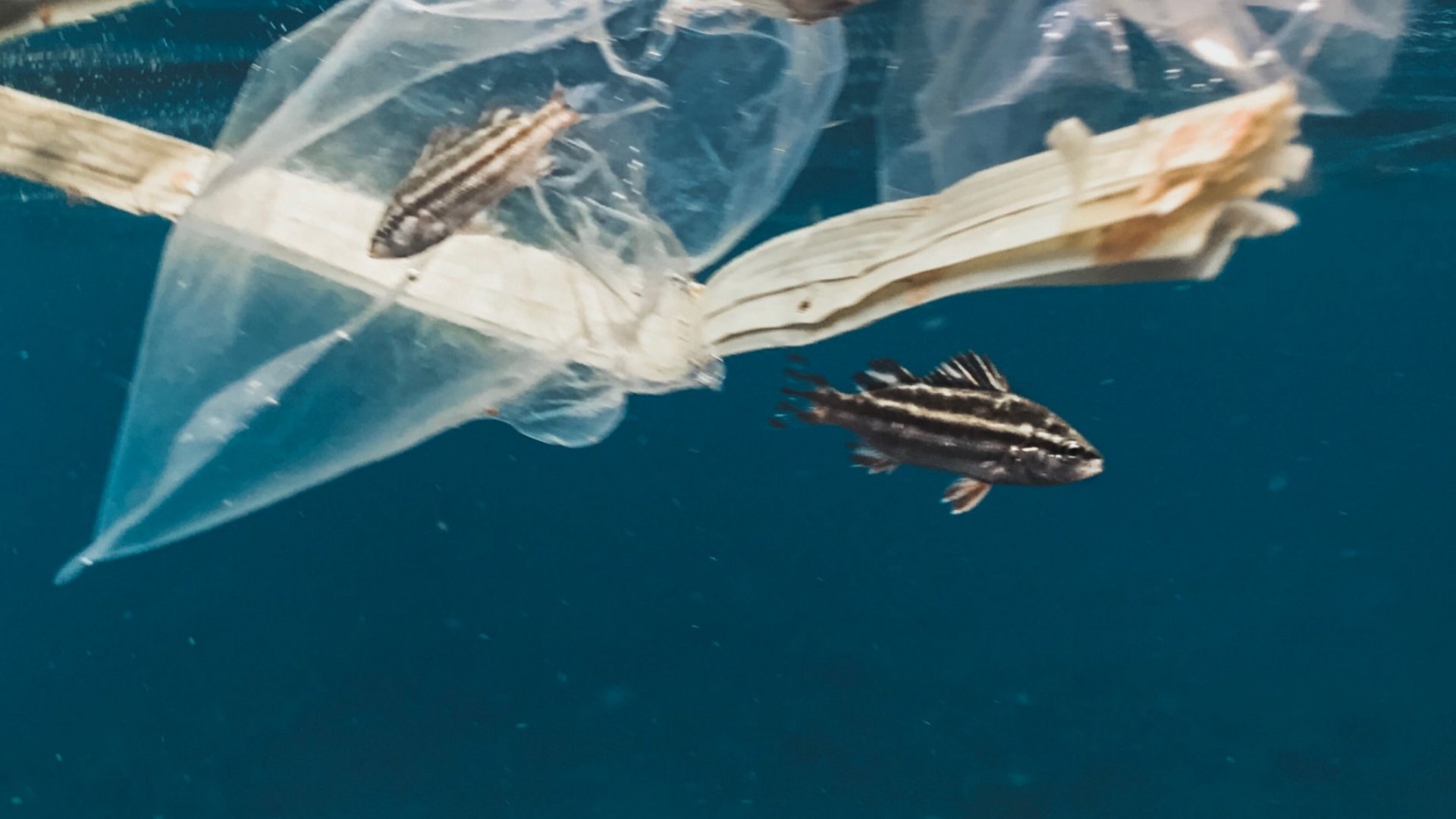

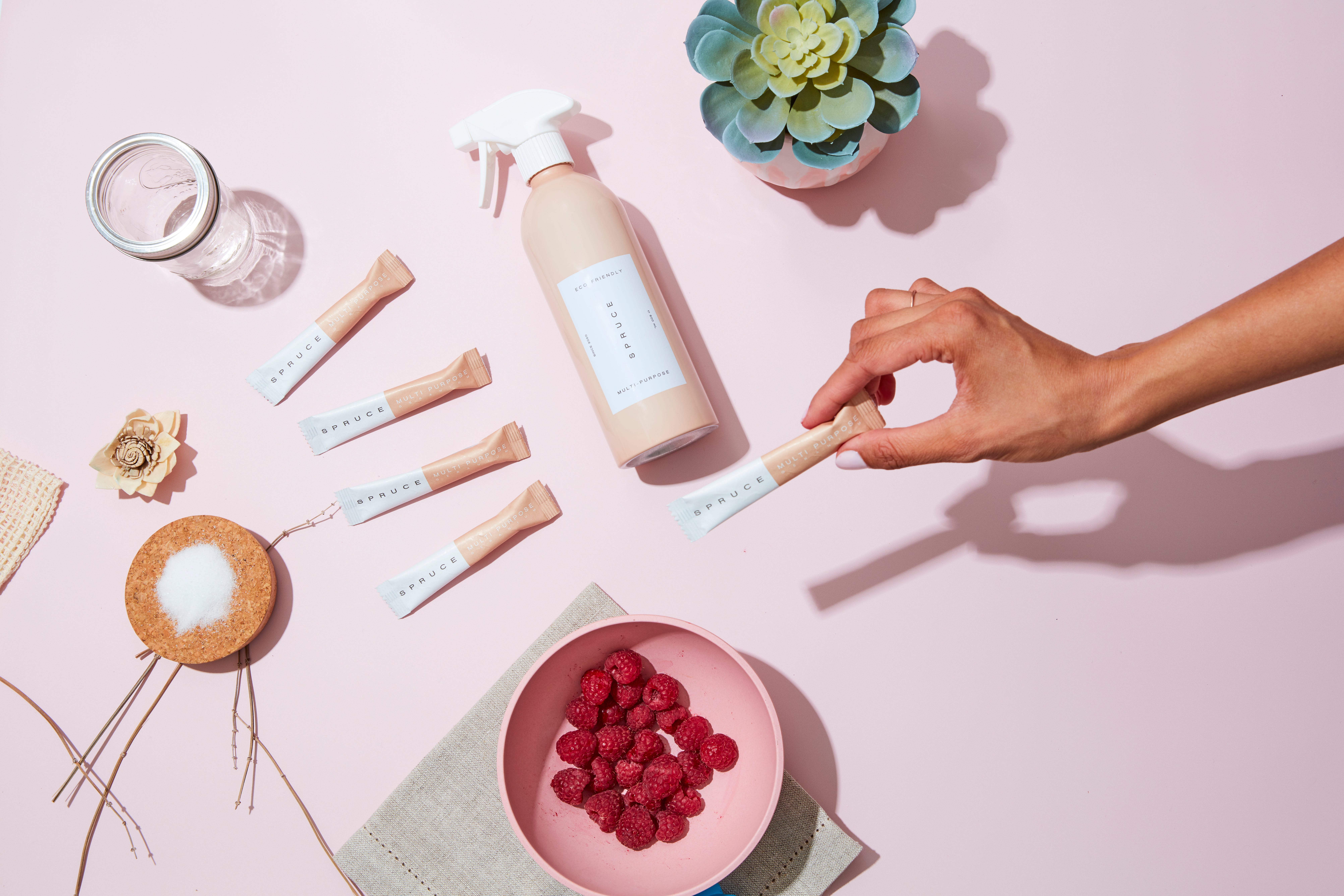 In the photo: Aesthetics and ease-of-use help drive higher adoption of refillable and circular products. Photo credit:
In the photo: Aesthetics and ease-of-use help drive higher adoption of refillable and circular products. Photo credit: 